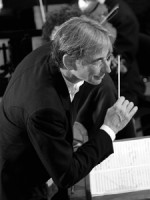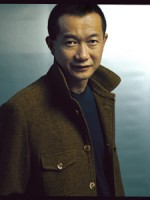Title
Thirty years ago, the arts in China stood perilously close to annihilation, the primary victim of a heinous ideological war known as the Cultural Revolution. Since the end of that dark chapter of the country’s history, however, China’s attitude toward the arts has undergone a radical shift, resulting in one of the most remarkable renaissances in modern times. This fall, Carnegie Hall and The Juilliard School celebrate this rebirth and some of the artists that define it with Ancient Paths, Modern Voices, a 21-day festival featuring some of China’s greatest and most recent contributions to traditional and contemporary music, theater, and dance.
Body
The Cultural Revolution, which spanned the decade from 1966 until approximately 1976, was the manifestation of Chairman Mao Zedong’s strategy to liquidate the so-called “bourgeois” elements of society that were a threat to his regime’s political supremacy. In addition to his direct opponents, artists and intellectuals of every kind were specifically targeted. They were often imprisoned, separated from their families, and sent to forced labor camps in remote regions of the country for years at a time. Many disappeared completely. Because the country was so thoroughly closed to foreign interests at this time, the extent of these purges was not known to the West until after the fact. Even today, information is sparse, but it is believed that the victims of this reign of oppression may number in the millions.
In a recent e-mail exchange with The Journal, composer Chen Qigang (communicating through a translator, since he speaks no English) shared his feelings about living in this time: “That was an unforgettable decade in my life,” he wrote. “I was between the ages of 15 and 25. During this time I saw with my own eyes what was evil in human nature. I survived the cruelest ordeals, and at the same time I learned to appreciate what’s so precious about life. Many times, my friends and I struggled with despair, wondering whether we would have a future. As common people, we couldn’t see anything ahead of us, nor could we see our parents or siblings. We lived in darkness … Although the living experience was harsh, it turned out to be an invaluable treasure trove for the spirit. History has forced this upon us, creating a generation that’s different from any other.”
Indeed, it is hard to believe the depth and breadth of the artistic outpouring that followed the reopening of the universities and conservatories in 1978, institutions which by that point had stood empty for over a decade. As acclaimed violinist and Juilliard faculty member Cho-Liang Lin explained, “The Cultural Revolution served to rekindle an almost frantic curiosity from Chinese musicians. This ruthless oppression only made them want to do more.”
Competition was extraordinarily fierce among applicants for the first class to be admitted to Beijing’s Central Conservatory. Ten years’ worth of prospective students applied for only a few dozen spaces. The roster of that incoming class reads like a Who’s Who list of internationally acclaimed Chinese artists: Chen Yi, Zhou Long, Tan Dun, Chen Qigang, and Bright Sheng are just a few of the success stories from the “Class of 1978.”
The music of the West became open once again to these young Chinese artists, and the result was a generation of vibrant and unique musical voices. “During the Cultural Revolution, all Western music was banned,” explained Chen Qigang, who was born in Shanghai in 1951. “Apart from a few Chinese compositions condoned by the government, we were not allowed to listen to anything. Those who are starving feel tremendous gratitude even if fed a morsel. During that time, being able to listen to any of the banned music (Beethoven, Mozart, Mendelssohn, Verdi, Tchaikovsky, Rachmaninoff, Ravel, etc.) was like drinking from a crystalline spring, so clear as if it flowed from heaven. That gratification and sense of novelty was unbelievable. How could these composers be so amazing? How could they write such music? … When the conservatory gates reopened, we felt so fortunate we were beside ourselves. We were hungry and devoured all we could learn. Whatever the West considered good, we accepted without any reservation.”
While Chen found his way to Paris after his time at the Central Conservatory and into Olivier Messiaen’s studio, young composers like Tan Dun, Chen Yi, and Zhou Long immigrated to the United States, where they were welcomed as graduate students at Columbia University. As their careers took off, the results were thrilling. Lin said he had a longstanding “desire to see one day that China could produce a Bartok—a composer who can fuse the ethnic element of Chinese music with a Western idiom. What I didn’t expect was such an outburst!” Even better, he added, “is that the greatest orchestras of the world have come to embrace these composers.”
Though this exciting new repertoire is probably the worst-kept secret among professional musicians, it has yet to reach a broader audience—something the Carnegie Hall festival aims to correct. “The country’s art and music are fascinating in so many ways,” said Clive Gillinson, executive and artistic director of Carnegie Hall, “even more so when you consider how China’s ancient folk traditions continue to influence its equally vibrant contemporary arts scene.”
He also sees this festival as an opportunity to foster a closer relationship between China and the United States, artistically and culturally. “I see ongoing cultural exchange between our countries as only being part of a positive and growing relationship,” he said. “China has already had such a huge influence on artists working around the world, and this will only continue to grow in the future. As we look further into the 21st century, we know that China will have an increasingly central role to play globally, and we wanted to use the festival to encourage greater understanding of this remarkable culture and to inspire greater curiosity.”
Chen Qigang sees this as an opportunity for China to improve its own system of support for the arts. “Chinese modern music faces some difficulties, because China doesn’t have a system that sustains long-term commissioning or performances,” he said. “Many composers do not have a chance to write new works or to hear their music performed. Many composers’ works receive their world premieres abroad. New music still does not have a large following [in China].”
Of course, meaningful cultural exchanges with China is nothing new to Juilliard, which counts among its initiatives two full-scale concert tours of that country, one in 1987 and the other in 2008. “The idea of having ongoing professional relationships with Chinese artistic institutions … has always been something that I have felt was extremely important since the time I was appointed in 1984,” said Juilliard President Joseph W. Polisi. “We were, I think, the first [foreign] conservatory orchestra to play in the People’s Republic of China,” he added, noting that in the in years since that first tour, “the teaching and the study of Western classical music has blossomed tenfold. There are so many young people now studying classical music in China, that this is a particularly good time for us to see how we can grow relationships and have continuing substantive relationships.”
Juilliard’s role in the Ancient Paths, Modern Voices festival is not insubstantial. The Juilliard Orchestra will be performing two major programs of Chinese and Chinese-inspired music, one under the direction of Tan Dun and one under Michael Tilson Thomas. These will include the premieres of two major new works: a piece for piano and orchestra, Er Huang, by Chen Qigang, with soloist Lang Lang, and a violin concerto, titled The Love, by Tan Dun, with soloist Cho-Liang Lin. The violin concerto was commissioned, in part, by Juilliard.
In addition, the Ensemble ACJW—featuring musicians of the Academy, a young artist program sponsored by Juilliard, Carnegie Hall, and the Weill Music Institute—will perform a program of chamber music by composers from the “Class of 1978” and the New Juilliard Ensemble will present a concert of music by composers living and working in China today.
In his e-mail, Chen seemed skeptical about his work. “I really have no idea how Er Huang for piano and orchestra will turn out because it will be a premiere,” he said. This was followed by a confession: “I do know, however, that this is [only] the second time in my life that I have composed for the piano, so the writing is not very mature.”
Lin, on the other hand, seemed excited to be presenting another work by a composer with whom he has worked frequently. “To play [Tan Dun’s] music well, one has to remember two things: It’s very vocal and it has to be unabashedly uninhibited. If there is one ounce of reticence, the music won’t work. Another thing about Tan is that he was a violinist and so he writes very sympathetically for the violin—idiomatically and for maximum effect.”
Beyond the festival, even beyond the art presented therein, lies a timely and provocative question: What else can we expect from China? It is a nation with a vast and celebrated past, and yet it appears to be one of the great wild cards of the 21st century. Chen offered the following, with curiosity and optimism about his country’s future: “History has proven that China is a large country that is impervious to change,” he explained. “The opening of the country and reforms of the past three decades have proven to be the most radical in the past 1,300 years. This will definitely rejuvenate the ancient kingdom. But where will we arrive in the end? No one knows. My intuition is that this change will be positive in fostering communication and advancement for China and the rest of the world.”






